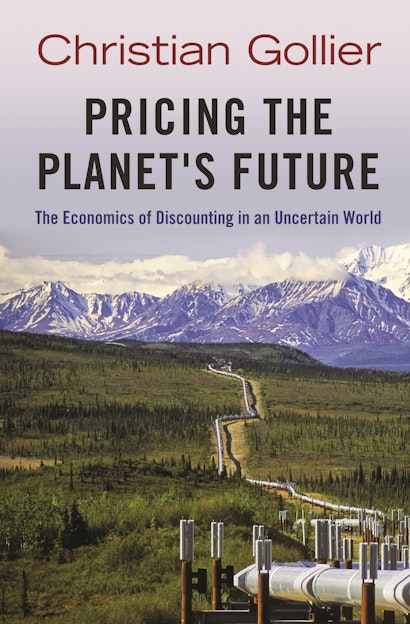Our path of economic development has generated a growing list of environmental problems including the disposal of nuclear waste, exhaustion of natural resources, loss of biodiversity, climate change, and polluted land, air, and water. All these environmental problems raise the crucial challenge of determining what we should and should not do for future generations. It is also central to other policy debates, including, for example, the appropriate level of public debt, investment in public infrastructure, investment in education, and the level of funding for pension benefits and for research and development. Today, the judge, the citizen, the politician, and the entrepreneur are concerned with the sustainability of our development. The objective of Pricing the Planet’s Future is to provide a simple framework to organize the debate on what we should do for the future.
A key element of analysis by economists is the discount rate—the minimum rate of return required from an investment project to make it desirable to implement. Christian Gollier outlines the basic theory of the discount rate and the various arguments that favor using a smaller discount rate for more distant cash flows.
With principles that can be applied to many policy areas, Pricing the Planet’s Future offers an ideal framework for dynamic problems and decision making.
Christian Gollier is professor of economics at the University of Toulouse and director of the Toulouse School of Economics. He is the author of The Economics of Risk and Time and the coauthor of Economic and Financial Decisions under Risk (Princeton).
"Pricing the Planet's Future is a technically adept compendium of ideas on social discounting in an uncertain world, seen through the lens of the discounted utilitarianism and the Ramsey framework. . . . [T]he book is not necessarily for the faint-hearted newcomer to intergenerational issues. Yet it will serve as an excellent accompaniment to the previous texts in this area, . . . and as a clarifying resource for the technician or policymaker entering into the ever advancing literature on social discounting."—Ben Groom, Journal of Economic Literature
"For readers with the appropriate technical background the book provides a very good introduction to the research frontier. Incorporating uncertainty into long-run project evaluation and discounting is certainly a central component of a more satisfactory approach to decision making, and Gollier's contributions are required reading for those wishing to understand the issues involved."—Antony Millner, Environment and Planning Government and Policy
"This careful and thorough book provides readers with a theoretical foundation for how to think about the discount rate. It starts with a simple case and then relaxes different assumptions to show how the discount rate is affected. A complete compilation of determinants, this book fills a gap in the literature."—Conny Olovsson, Stockholm University
"Pricing the Planet's Future explores the history and future of the modern economic theory of discounting and its consequences for sustainable development. Written for professional economists and graduate students, this book is one of the best on dynamic decision making."—Jason Shogren, University of Wyoming


